Filter by
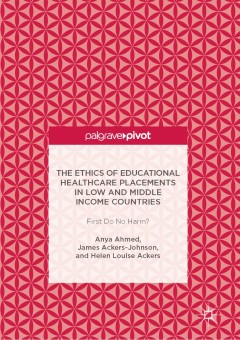
The ethics of educational healthcare placements in low and middle income coun…
This book examines the current state of elective placements of medical undergraduate students in developing countries and their impact on health care education at home. Drawing from a recent case study of volunteer deployment in Uganda, the authors provide an in-depth evaluation of the impacts on the students themselves and the learning outcomes associated with placements in low resource settin…
- Edition
- -
- ISBN/ISSN
- 9783319483634
- Collation
- xi, 158p. : ill.
- Series Title
- -
- Call Number
- 610.71 AHM e
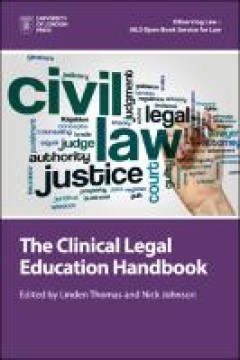
The clinical legal education handbook
The Clinical Legal Education Handbook is intended to act as a good practice guide and practical resource for those engaged in the design and delivery of clinical legal education programmes at university law schools. The Handbook is primarily aimed at clinics in England and Wales, but is likely to have content that is of interest to those engaged in clinic in other jurisdictions. The Handbook of…
- Edition
- -
- ISBN/ISSN
- 9781911507178
- Collation
- XIII, 465 p.
- Series Title
- OBServing Law
- Call Number
- 370 CLI c
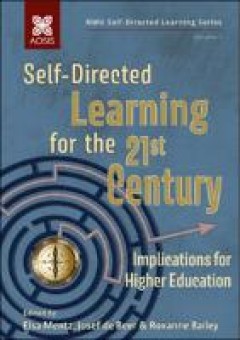
Self-directed learning for the 21st century : implications for higher education
This book is devoted to scholarship in the field of self-directed learning in the 21st century, with specific reference to higher education. The target audience of the book includes scholars in the field of self-directed learning and higher education. The book contributes to the discourse on the quality of education in the 21st century and adds to the body of scholarship in terms of self-direct…
- Edition
- -
- ISBN/ISSN
- 9781928396888
- Collation
- XXXIII, 436 p.
- Series Title
- NWU Self-directed Learning Series, 1
- Call Number
- 374 SEL s
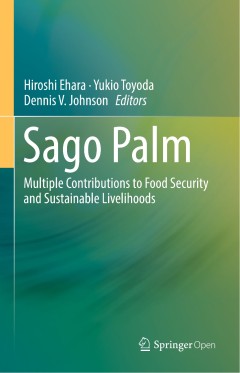
Sago palm : multiple contributions to food security and sustainable livelihoods
This book addresses a wide variety of events and technologies concerning the sago palm, ranging from its botanical characteristics, culture and use to social conditions in the places where it is grown, in order to provide a record of research findings and to benefit society. It discusses various subjects, including the sago palm and related species; differentiation of species of starch-producin…
- Edition
- -
- ISBN/ISSN
- 9789811052699
- Collation
- xiii, 330p. : ill.
- Series Title
- -
- Call Number
- 634.974 SAG s
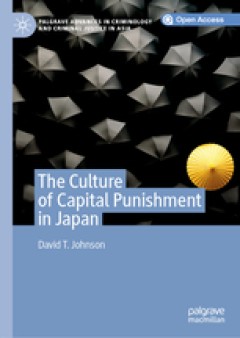
The culture of capital punishment in Japan
This open access book provides a comparative perspective on capital punishment in Japan and the United States. Alongside the US, Japan is one of only a few developed democracies in the world which retains capital punishment and continues to carry out executions on a regular basis. There are some similarities between the two systems of capital punishment but there are also many striking differen…
- Edition
- -
- ISBN/ISSN
- 9783030320867
- Collation
- XV, 125 p.
- Series Title
- -
- Call Number
- 364.660952 JOH c
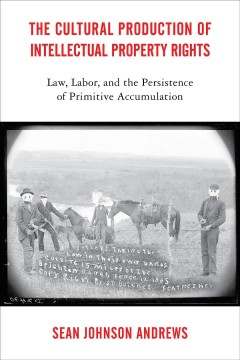
The Cultural production of intellectual property rights
This book looks at questions of intellectual property rights (IPR) -- historically, culturally, and politically -- and their relationship to law and the state. Arguing that the idea that intellectual property is another kind of property right (that is, that IP is a thing to be owned) exists in parallel with the idea that intellectual property is the consequence of a cultural process, Andrews di…
- Edition
- -
- ISBN/ISSN
- 9781439914298
- Collation
- -
- Series Title
- -
- Call Number
- 301 JOH c
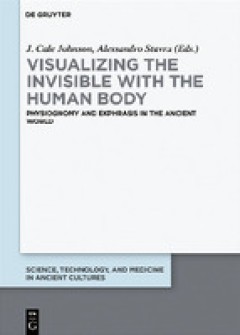
Visualizing the invisible with the human body : physiognomy and ekphrasis in …
Physiognomy and ekphrasis are two of the most important modes of description in antiquity and represent the necessary precursors of scientific description. The primary way of divining the characteristics and fate of an individual, whether inborn or acquired, was to observe the patient’s external characteristics and behaviour. This volume focuses initially on two types of descriptive literatur…
- Edition
- -
- ISBN/ISSN
- 9783110642698
- Collation
- VI, 501 p.
- Series Title
- Science, Technology, and Medicine in Ancient Cultures
- Call Number
- 480 JOH v
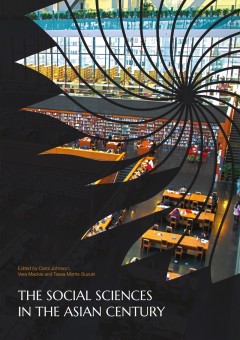
The social sciences in the Asian century
In this collection of essays, we reflect on what it means to practise the social sciences in the twenty-first century. The book brings together leading social scientists from the Asia-Pacific region. We argue for the benefit of dialogue between the diverse theories and methods of social sciences in the region, the role of the social sciences in addressing real-world problems, the need to transc…
- Edition
- -
- ISBN/ISSN
- 9781925022599
- Collation
- xi, 213p. : ill.
- Series Title
- -
- Call Number
- 300.95 SOC s
 Computer Science, Information & General Works
Computer Science, Information & General Works  Philosophy & Psychology
Philosophy & Psychology  Religion
Religion  Social Sciences
Social Sciences  Language
Language  Pure Science
Pure Science  Applied Sciences
Applied Sciences  Art & Recreation
Art & Recreation  Literature
Literature  History & Geography
History & Geography